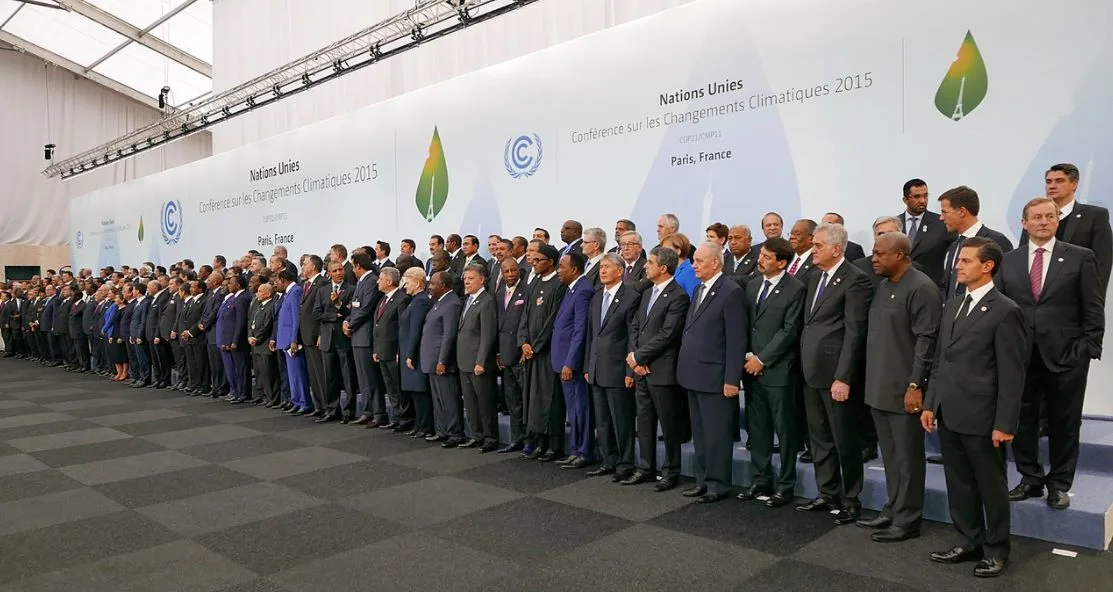
COP27 will see the climate conversation turn to compensation
At this year’s Conference of the Parties (COP27), negotiations will revolve around who should bear the cost for the disproportionate impacts of climate change on the developing world.
Every year, representatives from 198 countries come together at the Conference of the Parties (COP) to negotiate an agreement for the whole world to fight against — and adapt to — climate change.
In 2009, the richest countries, responsible for 80 per cent of emissions, committed to set up financial mechanisms to help poorer countries adapt to the climate of tomorrow.
At this year’s COP27 in Egypt, dubbed the “African COP”, they will have to negotiate funding to tackle the real and present effects of climate change, like the floods and droughts that already threaten the food supply on the continent.
Since the Paris Agreement was adopted in 2015, negotiations have mainly revolved around the roadmap: how to implement the agreement to every country’s satisfaction to reduce emissions, the mission at the core of the fight against climate change.
To rally every country, wealthier nations made commitments to the people in developing countries, who endure the worst impacts of climate change but are responsible for very little of it. At the COP15 in Copenhagen in 2009, the goal was set at $100 billion per year by 2020 to help developing countries.
Unfortunately, the promise was broken. The envelope never exceeded $87 billion. Last year, Canada and Germany mobilized to achieve this goal with a joint Climate Finance Delivery Plan. Developing countries are also requesting aid under the “loss and damage” clause, which stipulates that the countries responsible for the majority of emissions have a duty towards developing countries that are particularly vulnerable to the adverse effects of climate change.
According to Philippe Simard, lecturer at Université de Sherbrooke and expert on climate issues, this year’s negotiations should focus on the sums to be pledged to less wealthy countries after 2025. He observed that there needs to be a better balance between funds for adaptation and mitigation, as the scales are currently tipped nine to one in favor of mitigation. These funds are mostly dedicated to emission reduction and do not help developing countries tackle existing damage or adapt to future climate.
Contributions from wealthy countries are collected by the United Nations Environment Programme (UNEP) and redistributed to different projects. The funds are not granted to governments in developing countries, but distributed at the local level where needs are greatest. Funds aimed at reducing emissions are less accessible in some countries where fossil fuels are still required to improve basic quality of life.
Watch also: Indigenous peoples’ stewardship essential for achieving Glasgow Climate Pact
Patricia Nying'uro, a meteorologist and climate specialist in Kenya, told The Weather Network this highlights the dilemma in which many African countries find themselves.
“A large portion of the funds granted to developing countries to adapt to tomorrow's climate takes the form of loans with interests. It's not a gift. It costs us dearly,” she said.
Nying'uro added that adaptation projects should not be undertaken at the expense of tackling more important issues like poverty, which ironically could be exacerbated by climate loans’ interest rates.
“Science has shown time and time again that our countries are the most vulnerable to climate change. Developed countries are the first to cite science and dictate the way forward, but are slow to fulfill their promises,” she said. “We are asked to lower our emissions, but we do not emit that much and we want to continue to grow our economies. I am convinced that, in the future, we can build an economy based on sustainable development, but this transition requires a lot of money. That is why we need the funds that have been promised.”
The Horn of Africa has just recorded its fifth consecutive season with little to no rain, with devastating impacts. Other countries have experienced historic floods this year due to an unruly monsoon. Two years ago, a massive locust invasion ruined entire crops in several countries. All of these consequences of climate change have a direct effect on food security.
Nying'uro does not think that this COP will deliver the goods, but she highlights the progress achieved in the past few years. Every party agrees that we must increase investments in adaptation, because climate change is already here and our future will depend on our ability to adapt.
Thumbnail image: Heads of delegations at the 2015 United Nations Climate Change Conference (COP21), which led to the signing of the Paris Agreement. (Presidencia de la República Mexicana/Wikimedia)







